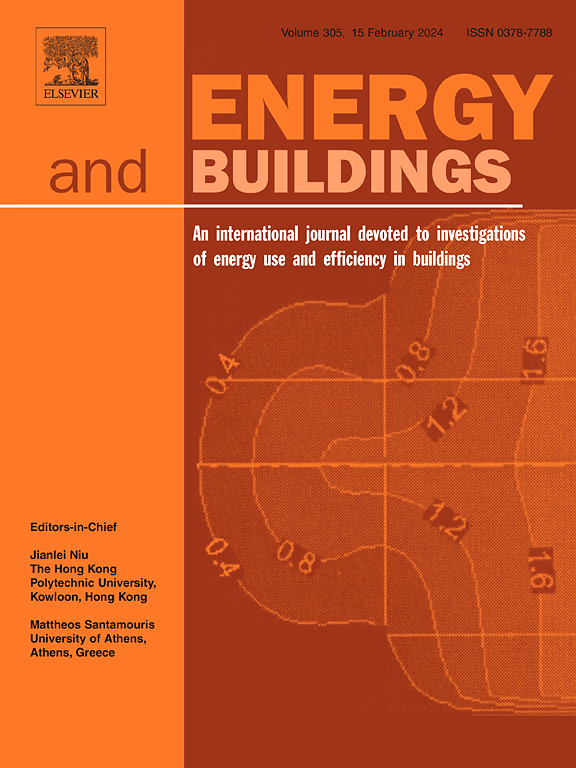Multi-day optimal operation of rural integrated energy systems with comfort and meteorological sensitivity considerations
IF 7.1
2区 工程技术
Q1 CONSTRUCTION & BUILDING TECHNOLOGY
引用次数: 0
Abstract
The flexibility of Integrated Energy Systems (IES) can effectively mitigate supply–demand imbalances caused by uncertainties in renewable energy generation and load demand. To fully leverage IES flexibility, a method integrating comfort and weather sensitivity with multi-day operational optimization is proposed. Specifically, based on field research, energy demand variations stemming from rural users’ sensitivity to indoor comfort and weather conditions were quantified. During system operation, a multi-day cross-period scheduling strategy was developed considering multi-day flexibility in renewable energy output and user load. Furthermore, user-side demand response potential was comprehensively explored to enhance IES scheduling flexibility. Building on this, a two-stage optimization method was introduced, where temporal resolution was determined according to IES equipment ramping capabilities. The formulated model was solved to obtain optimal scheduling results. Results demonstrate that the proposed method reduces total system costs by approximately 30.3 %. Environmentally, carbon emissions decrease by 12.6 %. Regarding system autonomy and reliability, independence improves by 28.8 %, with maximum continuous off-grid operation covering 73 % of the scheduling period. These findings confirm that the proposed method enhances IES flexibility while effectively mitigating operational uncertainties from renewable generation and load demand.
考虑舒适性和气象敏感性的农村综合能源系统多日优化运行
综合能源系统(IES)的灵活性可以有效缓解可再生能源发电和负荷需求不确定性造成的供需失衡。为了充分利用IES的灵活性,提出了一种将舒适性和天气敏感性与多日运行优化相结合的方法。具体而言,基于实地研究,量化了农村用户对室内舒适和天气条件的敏感性引起的能源需求变化。在系统运行过程中,考虑可再生能源输出和用户负荷的多日灵活性,提出了多日跨周期调度策略。全面挖掘用户侧需求响应潜力,增强IES调度灵活性。在此基础上,引入了一种两阶段优化方法,根据IES设备的爬坡能力确定时间分辨率。对所建立的模型进行求解,得到最优调度结果。结果表明,该方法可使系统总成本降低约30.3%。在环境方面,碳排放量减少12.6%。在自主性和可靠性方面,系统独立性提高了28.8%,最大连续离网运行时间占调度周期的73%。这些研究结果证实,所提出的方法增强了IES的灵活性,同时有效地减轻了可再生能源发电和负荷需求带来的运行不确定性。
本文章由计算机程序翻译,如有差异,请以英文原文为准。
求助全文
约1分钟内获得全文
求助全文
来源期刊

Energy and Buildings
工程技术-工程:土木
CiteScore
12.70
自引率
11.90%
发文量
863
审稿时长
38 days
期刊介绍:
An international journal devoted to investigations of energy use and efficiency in buildings
Energy and Buildings is an international journal publishing articles with explicit links to energy use in buildings. The aim is to present new research results, and new proven practice aimed at reducing the energy needs of a building and improving indoor environment quality.
 求助内容:
求助内容: 应助结果提醒方式:
应助结果提醒方式:


